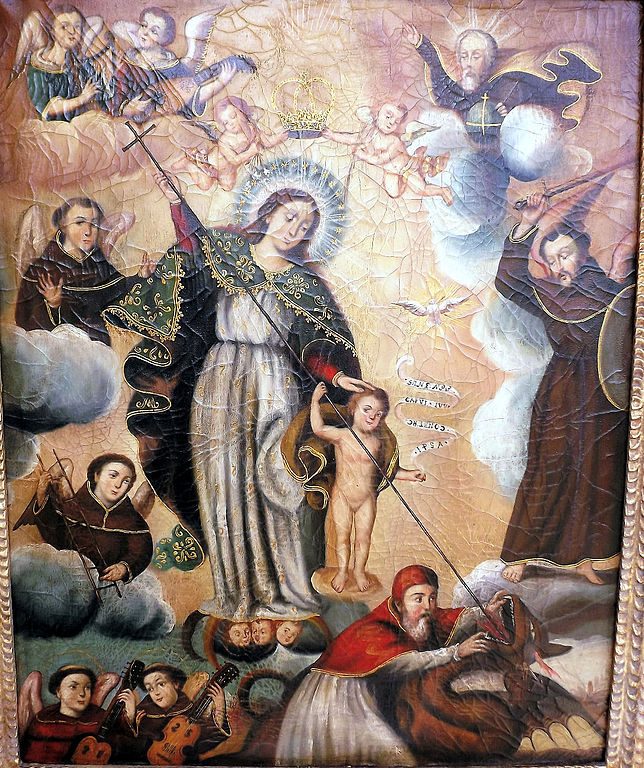The angel Gabriel was sent from God to a town of Galilee called Nazareth, to a virgin betrothed to a man named Joseph, of the house of David, and the virgin's name was Mary. And coming to her, he said, “Hail, full of grace! The Lord is with you.” But she was greatly troubled at what was said and pondered what sort of greeting this might be. Then the angel said to her, “Do not be afraid, Mary, for you have found favor with God. Behold, you will conceive in your womb and bear a son, and you shall name him Jesus. He will be great and will be called Son of the Most High, and the Lord God will give him the throne of David his father, and he will rule over the house of Jacob forever, and of his Kingdom there will be no end.” But Mary said to the angel, “How can this be, since I have no relations with a man?” And the angel said to her in reply, “The Holy Spirit will come upon you, and the power of the Most High will overshadow you. Therefore the child to be born will be called holy, the Son of God. And behold, Elizabeth, your relative, has also conceived a son in her old age, and this is the sixth month for her who was called barren; for nothing will be impossible for God.” Mary said, “Behold, I am the handmaid of the Lord. May it be done to me according to your word.” Then the angel departed from her.
Luke 1:26-38
To the virgin Mary was sent, not any one of the angels, but the archangel Gabriel; for upon this service it was just that the highest angel should come, as being the bearer of the highest of all tidings. He is therefore marked by a particular name, to signify what was his part in the work. For Gabriel is interpreted, "the strength of God." By the strength of God then was Jesus to be announced as the God of strength, and mighty in battle, to defeat the powers of the fallen angels.
Far different then to the news formerly addressed to Eve, is the announcement now made to the Virgin. In the former, the cause of sin was punished by the pains of childbirth; In the latter, through gladness, sorrow is driven away. Hence the angel not unaptly proclaims joy to the Virgin, saying, "Hail."
Maria, in Hebrew, is "the star of the sea;" but in Syriac it is interpreted "Mistress" because Mary was thought worthy to be the mother of the Lord of the whole world, and the light of endless ages.
But this is the point of the whole message. The Word of God, as the Bridegroom, has shaped the whole nature of man into Himself. But at last comes the most perfect and comprehensive greeting: "Blessed are you among women." i.e. Mary alone, far before all other women; that women also should be blessed in you, as men are in your Son. For as by one man and one woman came at once both sin and sorrow, so now also by one woman and one man has both blessing and joy been restored, and poured forth upon all.
For the Virgin found favor with God, in that dressing her own soul in the bright robes of chastity, she prepared a dwelling-place pleasing to God. Not only did she retain her virginity, but her conscience also she kept from stain.
參考 References:
Homily 34 on the Gospels (St. Gregory the Great)
St. Gregory of Nyssa
Geometer
St. Photius
